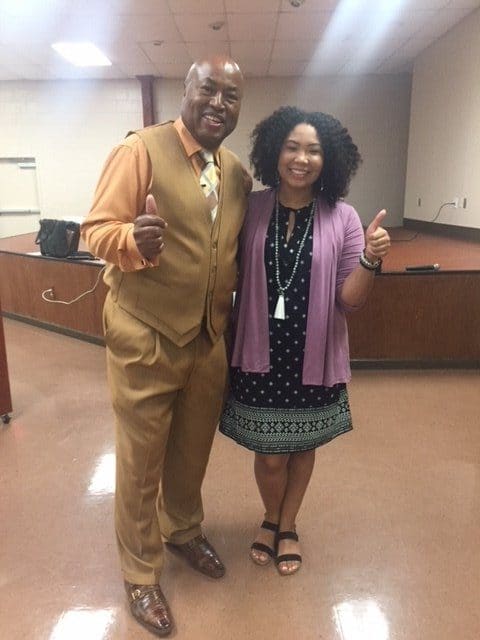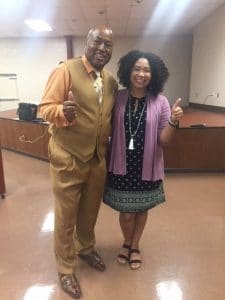
Starting the Year on a Good Note
Starting the Year on a Good Note
 All teachers want to start the year off on a good note. I’m one of those people who believes how you start is how you will finish. You have a better chance to finish strong if you start strong. Here are some suggestions to try during the first two months of the new school year to give your class a great start!
All teachers want to start the year off on a good note. I’m one of those people who believes how you start is how you will finish. You have a better chance to finish strong if you start strong. Here are some suggestions to try during the first two months of the new school year to give your class a great start!
1. Be Positive
Let the class know that this is a chance for everyone to start fresh. Explain that it doesn’t matter how they did last year. All that matters is how they perform now. Tell them that you don’t listen to rumors about students from last year and don’t encourage this type of talk in your classroom. This is a clean slate for everyone and an opportunity to do better!
2. Go into the Year Expecting Good Things to Happen
Expect this to be a super year because you want it to be. Know that you are prepared to do your best and that you are ready to make good things happen. Let your students know that you expect the same optimism and preparation from them for the new school year!
3. Tell Them about YOU
Humanize yourself. If you’re going to aspire to develop relationships, then show them your human side. Within reason and always keeping it appropriate, tell them about your family, children, pets, or any unique hobbies you may have. If you’re a coach or a sponsor, let them know. Much of what you share will depend on the grade level and situation, but sharing about yourself is a great way to establish connections immediately. I still get surprised at how much a student can feel connected to their teacher because they feel they have something in common.
4. Make Your Expectations Known Right Away and Make them Clear
There are three types of expectations I believe a teacher should highlight. The first is the social aspect. Let students know that you expect everyone in the room to be courteous and respectful to each other. Let them know that being nice does not cost anything and that it is the minimum that you expect everyone to be towards each other.
The second aspect is the academic domain. Let everyone know that you expect them to simply do their best, give their best effort, and turn in all work completed throughout the year.
The third aspect is the human domain. Tell the class you expect them to be a “family” by the end of the year. Let them know that you want every person to feel included, that no one feels ostracized for any reason and that everyone encourages each other rather than bullying. This takes time, but it’s important to make it a priority!
5. Let Your Students Talk and Get to Know Each Other
There are many activities (icebreakers) with which to do this. The better your students know each other, the more included everyone feels and the more everyone can work together to accomplish goals and help each other.
Some ideas you may want to try are:
- Play the blob game. Have students organize themselves in groups or “blobs” by things they have in common: hobbies, birthdays, eye color, or favorite sport.
- Play the name game. Have students say their first and last name then say something they like. The next student to go says their own name and something they like, but then repeats the name of the person that just went as well as what they said they liked.
- Play catch. Bring a beach ball that has the beginning of a sentence on each side, whatever side the student sees first when they catch the ball is the question they answer. For example, you can use questions such as “My favorite thing I did this summer was…”, or “My favorite subject is…”
6. Explain Your Rules
Keep your rules simple, have no more than three rules and make sure they are reasonable. If you can involve your students in creating the rules, this is great. That may give them a feeling of ownership. However, be sure they are rules you can live with and enforce.
7. Clearly Cover Your Procedures
Put your procedures in writing and discuss them with the class to be sure everyone is on the same page and understands what you expect of the students throughout the year.
8. Capitalize on Good Things
When good things happen, point out to the class how wonderful everyone is. Use positive reinforcement to create an environment where students are driven to succeed and can be proud of their achievements.
9. But Don’t Let Bad Things Define Your Class
When bad things happen, consider them to be an aberration and move on. Do not keep replaying things and do not focus on bad events that have occurred. Just as bad actions don’t define a person, so bad things won’t define your class, nor should you let it.
10. Early in the Year, Start with Easier Instructional Information
There is a saying that success breeds success. Start with material that’s almost like a review so everyone can feel confident going into the school year. This simple step will help students feel more comfortable and familiar and can help facilitate success right from the beginning!
My friend, as a veteran I can assure you your year will be a great one if you believe it, stay positive and, during difficult times, remember why you became a teacher—to change lives for the better! And you can!
